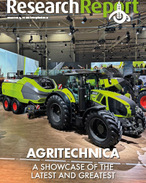This article is 3 years old. Images might not display.
During December 2021, approximately one million electronic NLIS (sheep) tags were read in Victorian saleyards and abattoirs and movements uploaded to the NLIS database demonstrating widespread adoption by industry.
Agriculture Victoria's manager Livestock Traceability, Ben Fahy, said electronic identification (EID) tagging and movement recording facilitate accurate ‘whole-of-life' tracking of sheep and goats for food safety, disease control and market access purposes.
"Electronic tagging is an important tool in ensuring that Victorian sheep and goats can be quickly tracked in the event of a disease outbreak or food safety issue," he said.
"Victorian saleyards have become world leaders in this area. They have demonstrated repeatedly and over a long time now, the ability to efficiently scan thousands of sheep on a daily basis," Fahy said.
Electronic tagging has been required in the United Kingdom for several years because of the role that sheep can play in the spread of infectious diseases such as foot-and-mouth disease (FMD). But unlike the situation in Victoria, saleyards in the UK typically only sell and scan fewer than 10,000 head at a sale.
"The excellent traceability of Victoria's system was demonstrated by the SAFEMEAT sheep traceability evaluation which showed that Victorian EID tagged sheep were 99 per cent traceable, compared to 70 per cent traceability for interstate sheep that do not require electronic tags," Fahy said.
"The automatic verification of the presence of a sheep or goat at a saleyard following the scanning of its tag enables reliable traceback and facilities prompt contact tracing in a disease emergency. Contract tracing where saleyards are involved in the recent movement history of sheep can only be done successfully with electronic tagging," he said.
"The entire livestock supply chain should be congratulated for their efforts during Victoria's implementation of an electronic NLIS (Sheep & Goats) system," Fahy said.
Since 2017, producers have purchased more than 51 million electronic NLIS (sheep) tags and almost 35 million sheep and goat movements have been recorded on the NLIS database.
From 1 January this year, all sheep and non-exempt goats need to be identified with an electronic NLIS (sheep) tag before leaving a Victorian farm.
Victorian sheep and goat producers are able to access the most affordable electronic tags in Australia with prices starting from 77 cents per tag.
For more information, visit https://agriculture.vic.gov.au/livestock-and-animals/national-livestock-identification-system























